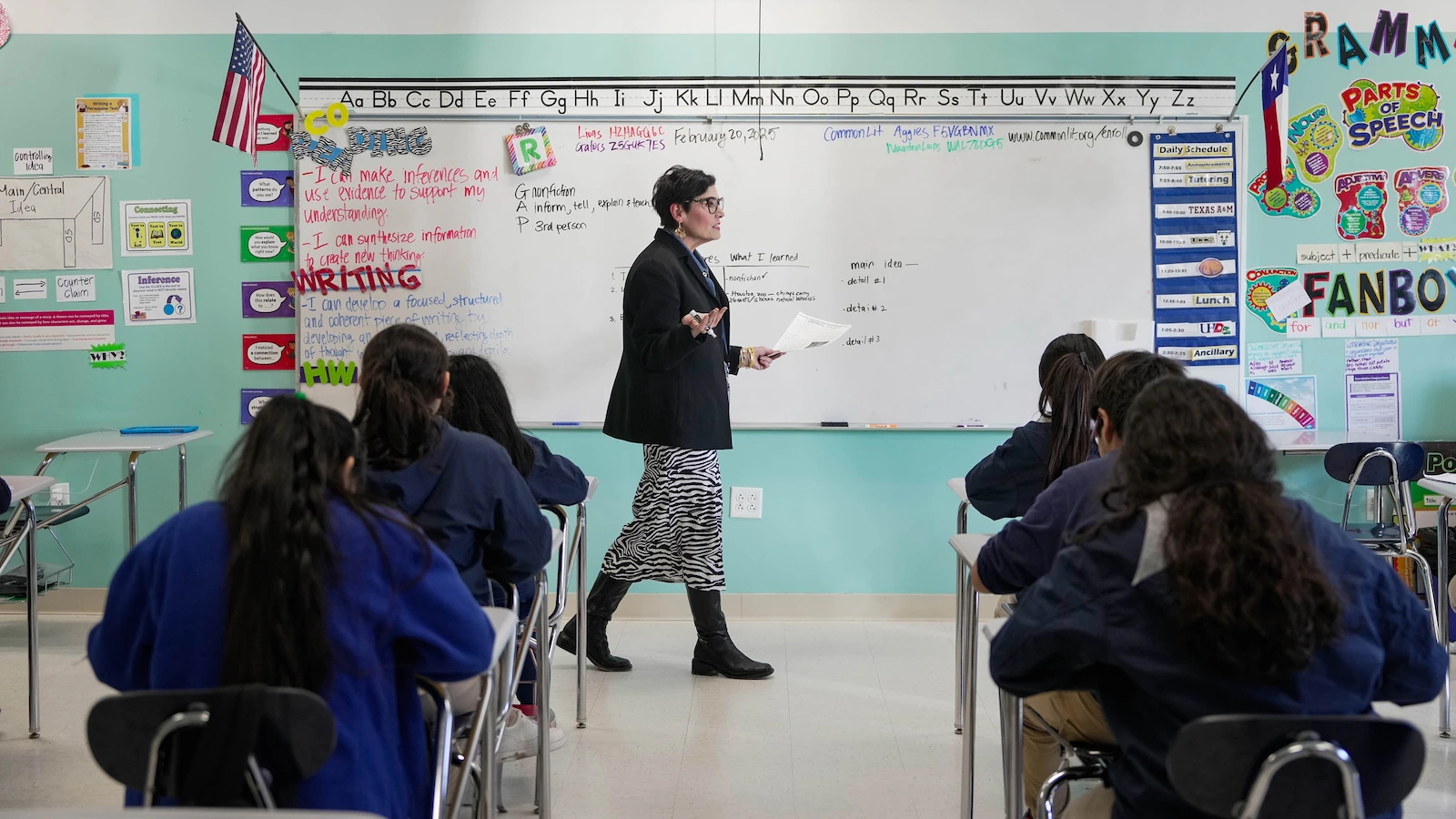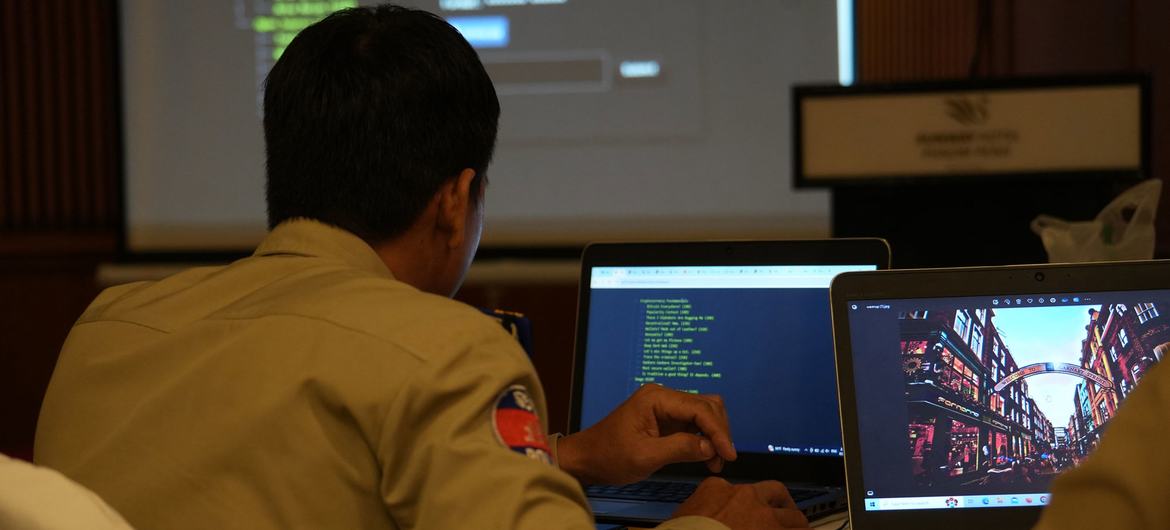Copyright ABC News

The school choice movement is bolstering access to educational options for U.S. students and families according to parents, educators and policymakers who spoke to ABC News. School choice has become a buzzword in education circles over the years and can simply mean putting parents in charge of their child's education. But by definition it is a practice that allows public education funds to follow students to the schools or learning environments families choose, according to EdChoice, the nonpartisan nonprofit K-12 organization. At the federal level, Republican Sen. Bill Cassidy, who chairs the Health, Education, Labor, and Pensions Committee, is urging states' governors to opt-in to his recently signed school choice model. The provision -- included within the President Donald Trump's megabill -- provides a charitable donation incentive for individuals and businesses to fund scholarship awards for students to cover expenses related to K-12 public and private education starting in 2027. "By participating, you can give countless students the chance to pursue the education they deserve -- without any new state spending and without new mandates or added bureaucracy," Cassidy and the bill's other Republican sponsors wrote in letters to the states sent earlier this month. This provision establishes a new, permanent, dollar-for-dollar credit of up to $1,700 for individuals for donations to non-profit scholarship-granting organizations, according to the letters. Critics have said they fear federal school choice programs could defund or harm the traditional public school system, but the lawmakers argue this tax credit provides more options for families -- not less. "It gives families more options -- whether in public or private, religious or non-religious settings -- and allows students to either pursue new opportunities or enrich their current education," the lawmakers wrote in the letter. As the Department of Education is reoriented to restore power to local communities and families, Education Policy Analyst Colleen Hroncich suggested there's been an "uptick" in frustrated families who have chosen alternatives to traditional public education, such as public charter, private, home and microschooling. Hroncich, of the libertarian think-tank the Cato Institute's Center for Educational Freedom, told ABC News that there was a rise in popularity for these options during the COVID-19 pandemic because of school closures. "Some people were frustrated by what they saw their kids were -- or were not -- learning [and] whether that was content that went against their family values, or content that was below the level that they thought their children were or should be," she said. Education Secretary Linda McMahon has said she is promoting what the Trump administration has called "educational freedom" with K-12 -- where parents choose the school that best fits the unique needs of their children. Charter school change McMahon and the Trump administration have recently taken steps to expand school choice nationwide by funding the federal Charter School Programs with a record $500 million in Fiscal Year 2025. Public charter schools are taxpayer funded and run through a legislative contract, or charter, with the state, district or other entity, according to the National Center for Education Statistics. Charters are agreed upon and must meet the accountability standards outlined in the contract, but they’re exempt from certain state or local rules, which can give a charter school more flexibility than a traditional public school. The Trump administration argues charter schools are outperforming their public school peers in math and reading because they empower parents to pursue the "right educational fit" for their children. It comes as Cassidy's home state of Louisiana has witnessed a wave of charter schools in the New Orleans Public Schools system, which has gone almost exclusively public charter after Hurricane Katrina. Jerel Bryant, the CEO of Collegiate Academies -- a charter network in Louisiana -- told ABC News that he is an advocate for schools that work for the children they're serving and elevate their expectations, possibilities and outcomes. One of those newly chartered public schools is George Washington Carver High School, a staple in New Orleans' lower 9th Ward for decades. Carver was No. 1 in academic growth in New Orleans in the 2023-2024 school year, according to the latest data from the Louisiana Department of Education. Carver teacher Ronald Evans -- a recent graduate of the school himself -- stressed if a charter network comes in with the right people, mission and energy, then it's worth it to "give it a shot." Joelia Castillo is a junior at Carver who moved to Louisiana from Texas before her freshman year. She said leaving the public school system to attend Carver has inspired her academically. "Everybody is just happy to be around and it's never bad vibes," Castillo said. Alternative school models Families have also been turning to home school and microschool models as well as innovative private schools that harness the rapidly growing technology of artificial intelligence. Education experts said they believe homeschools are on the rise as some parents are worried about safety in schools. Microschools are lesser known and offer more personalized multifamily learning environments and can be organized as shared learning opportunities for homeschooled children, according to the National Microschooling Center. About a decade ago, MacKenzie Price started the burgeoning Alpha School as a quasi-microschool when her daughters said they were bored in their traditional classes. The Alpha School's learning model is known as a disruptor in education because it consists of two hours of AI-enhanced instruction, where Price claims students learn twice as much as they normally would in two hours. Students at Alpha School do not have traditional teachers. They are helped by adults or "guides" for the beginning of the instructional period and then they learn life skills and explore their own interests through the rest of the day. Instruction happens through AI applications on computer devices. And while there is an adult in the room, the students do not have an instructor teaching them the material. Hroncich with the Cato Institute concluded that today’s parents are condemning the one-size-fits-all-approach and less afraid of "going out and doing new things." "Different ways of presenting information will work better for different kids," she said. "Sometimes, if your child hates school, the school might be the problem, not your child."



